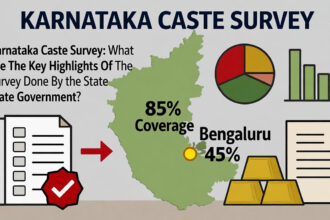🇨🇦 Canada Invites PM Modi to G7 Summit: Repairing Relations or Ignoring Tensions?
Background & The Invitation
On June 6, 2025, Canada’s new Prime Minister and G7 Chair, Mark Carney, officially invited Indian Prime Minister Narendra Modi to attend the 51st G7 Summit in Kananaskis, Alberta, scheduled for June 15–17, 2025 .
Carney justified the invitation by emphasizing India’s position as the world’s 5th largest economy, its demographic significance, and its critical role in global supply chains and issues like energy security, AI, and critical minerals .
Modi Accepts: Warming Diplomatic Tone
PM Modi accepted the invitation promptly, describing both nations as “vibrant democracies bound by deep people-to-people ties” and expressing optimistic intent to “work together with renewed vigour”.
Support from Canadian MPs
Conservative Leader Pierre Poilievre welcomed the inclusion, pointing to India as the “fastest‑growing global partner”.
However, Liberal MP Sukh Dhaliwal (representing a riding in Surrey, B.C.) voiced strong opposition, stating that constituents see it as sending the wrong message… that anyone can come into Canada and kill Canadians and walk away with impunity.
G7 Endorsement & Canada’s Global Strategy
According to analysts like Vina Nadjibulla of the Asia Pacific Foundation of Canada, there was a “strong push from G6 countries” to include India, underscoring its rising geopolitical importance . Other G7 members reportedly backed the move, seeing India’s inclusion as consistent with broader summit participation trends.
Diplomatic Rift: Nijjar Case & Sikh Community Pushback
The backdrop of this invitation is the June 2023 assassination of Hardeep Singh Nijjar, a Sikh separatist in Surrey, B.C. Canadian authorities allege high-level Indian government links, and four Indian nationals have been charged.
Canadian investigators also reported broader Indian interference in Canadian affairs, including election meddling.
The World Sikh Organization of Canada condemned Carney’s invitation as a “betrayal of Canadian values”, noting its timing coincides with the anniversary of Nijjar’s killing . Prominent Sikh leaders like Balpreet Singh decried it as a reversal of Trudeau’s principled stance.
The situation is further inflamed by protests planned by Sikh separatist groups in Canada during the summit.
Carney’s Position: Pragmatic Diplomacy or Overlooking Accountability?
Carney stressed that legal proceedings into Nijjar’s murder are ongoing and it is inappropriate to comment prematurely . He noted improved “law enforcement dialogue” with India.
Yet critics argue this invitation sends a message of impunity, possibly weakening Canada’s commitment to justice and accountability in foreign matters, a point echoed by Dhaliwal and Sikh groups.
Domestic Politics & Canada’s Strategic Pivot
Carney’s approach marks a departure from Justin Trudeau’s strategy, which linked diplomatic ties to domestic Khalistan politics.
Canada is aiming to reset relations, diversify trade beyond the U.S., and coordinate broader agendas including China tariffs and fentanyl trafficking with global partners.
Why This Matters
- Global Diplomacy: Reinforces the trend of including major emerging powers at the G7 to address shared challenges like trade and supply chains.
- Domestic Tensions: Sparks debate within Canada, with Sikh community backlash clashing against pragmatic foreign policy goals.
- India–Canada Reset: Offers a possible thaw in bilateral relations post-Nijjar controversy, but not without lingering mistrust and legal inquiries.
- Signpost for Agenda: Modi’s attendance may reshape summit discussions, particularly around trade, critical minerals, climate resilience, and digital infrastructure.
Looking Ahead
PM Modi’s visit (June 15–17) will be closely watched for:
Bilateral discussions between India and Canada.
Summit outcomes involving supply chain and climate commitments.
Sikh community reactions and possible protests visible on Canadian soil.
This episode highlights the complex balancing act of reconciliation versus accountability in international relations—especially when the scars of past diplomacy remain fresh.















